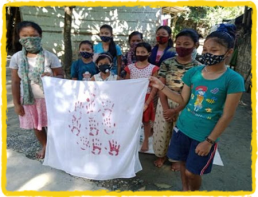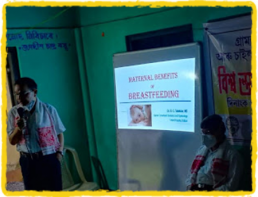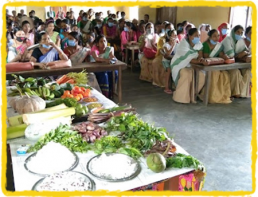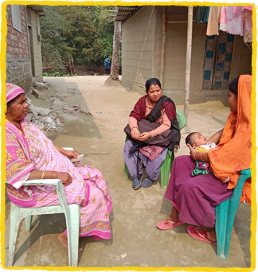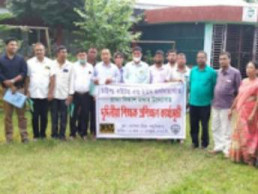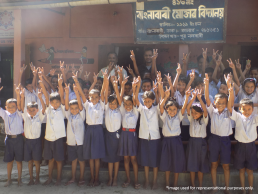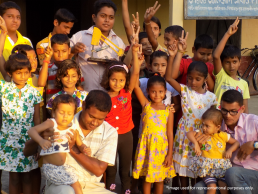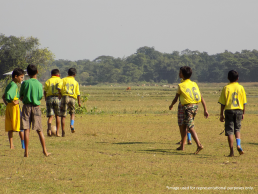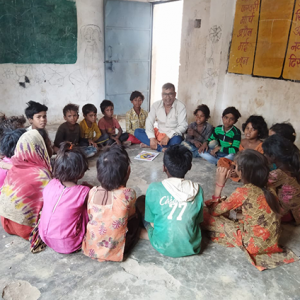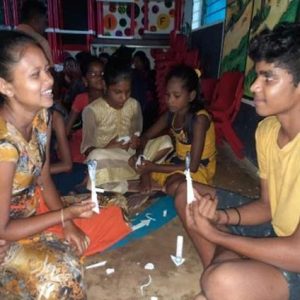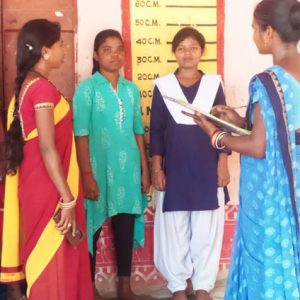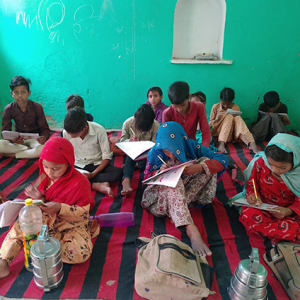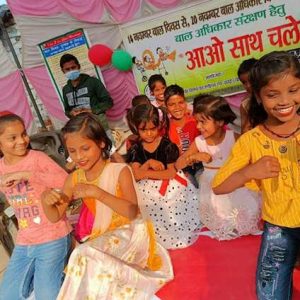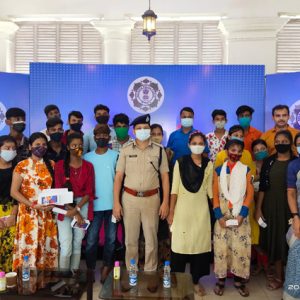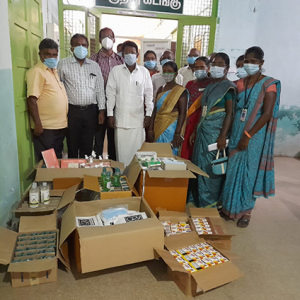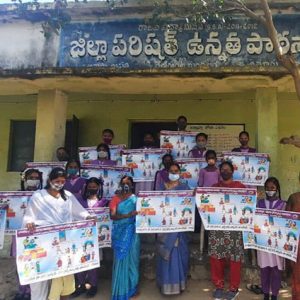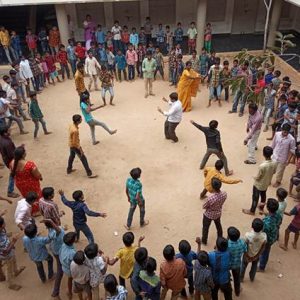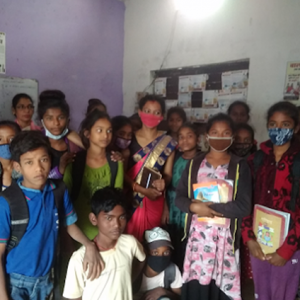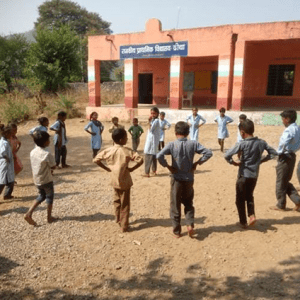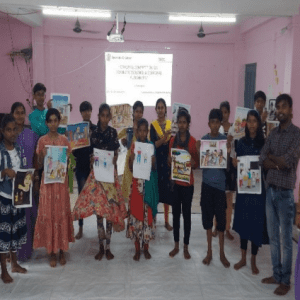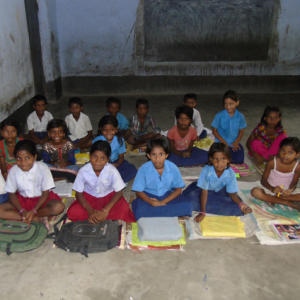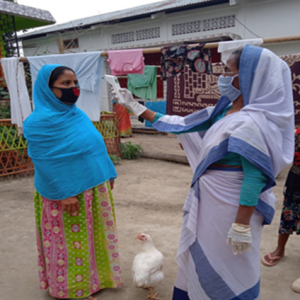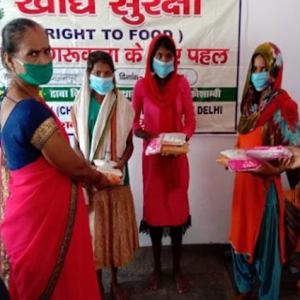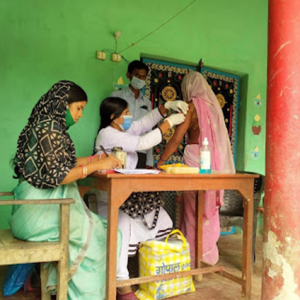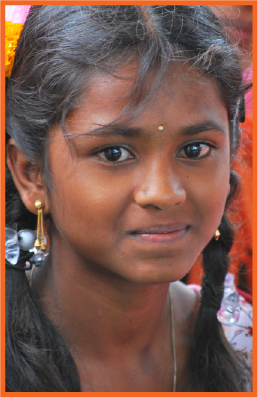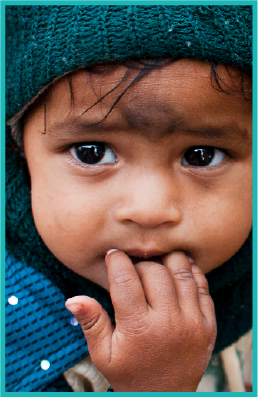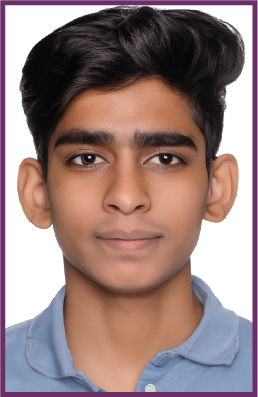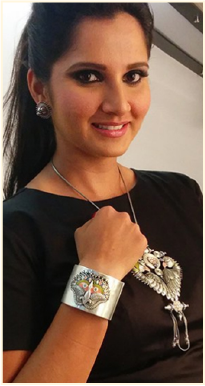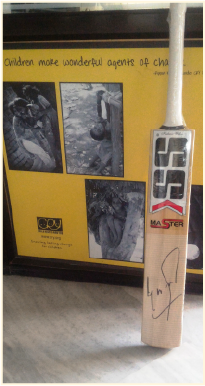Recent Donations:

Hans Foundation
Project Gramya Vikash Manch (GVM)
- Total Amount Donated
$61,707
- Donation Goal
$61,707
0
Days to goTarget Goal
- Total Amount Donated
$61,707
- Donation Goal
$61,707
Campaign Story
About the project
GVM is working on health and malnutrition issues in 18 villages in Assam. Awareness level in the community, sensitization towards accessing health care services including immunization, lack of services like Ante-natal care (ANC) and institutional delivery, balanced diet and hygienic practices influence the poor health and nutrition outcome indices. It was evidently surfaced that enrolment of the children is not an issue, rather a compelling issue is retention and regularity of the children in government schools. Being a flood and waterlogging prone state, schools are vulnerable to physical barriers and thus parents are scared to send their children to school during the rainy season.
Making a difference
CRY America Project GVM is working towards providing access to free, primary healthcare in the intervention areas. The project is working at reducing the rate of child malnutrition in operational areas while increasing the enrollment rate and retention rate in schools. The key activities at the project location are home based tracking of pregnant and lactating mothers, tracking of children for education support, and engagement with children’s groups.
The way forward
● Conduct specialized workshops to educate 27 SMC members about their roles, functions, and the significance of their contributions to school governance.
● Formation of 38 children collective (25 members in each group)
● Regular household level counseling of 1300 parents on ensuring 100% enrolment and retention in schools
● Tracking of all 260 children in 3-6 years age group and ensure 100% enrolment in AWC’s
● Linking 147 children to adolescent resource centres
● Ensure health and nutrition is prioritized in at least 20 GPDP
● All 415 pregnant women to be tracked regularly
● Track all the 600 adolescents for Hemoglobin testing
● Regular quarterly meetings with the parents to regularly attend Village Health & Nutrition Day for immunization of the 432 children.
● Community meeting with 95 mothers to discuss the benefits of complementary food.
● Regular tracking of 10 SAM (Severe acute malnutrition) children
● Celebration of nutrition week in 38 centers
Project Impact

377
School Management Committee members trained in their roles and responsibilities

767
children (9-12 months old) completely immunized

862
pregnant and lactating mothers linked to one or more existing health programs

279
children transitioned to pre-school

1241
children ( 6-14 years) enrolled in schools

176
Capacity building sessions for 176 frontline workers improved service delivery

332
women benefitted through government programs

9
Community Health Officers appointed across 9 centres

9
Model School Management Committees (SMC) established to oversee services like growth monitoring, immunization, and health and nutrition

2780
Growth tracking done for 2780 children in 0-5 age group

4
severely underweight children referred to Nutrition Rehabilitation Center
Current Year’s Approved Grant
Building Awareness for Exclusive Breastfeeding Practices in Rural Communities
In rural areas of India, there are many traditional practices and taboos related to the child feeding process, such as the initiation of honey, water, and lemon water within 6 months of age. To address this issue, the project team launched an extensive community mobilization and awareness-building process to promote exclusive breastfeeding (EBF) practices and the initiation of supplementary feeding after 6 months as a part of a comprehensive child health care program.
Morzina Begum and Safikul Ali, a couple from Nalbari district, exemplifies the success of this initiative. Despite their limited education and small family business, they attended various awareness-building sessions and became informed about the importance of EBF. When their son, Irfan, was born, weighing 2.8 kgs, they were committed to following the recommended practices.
Morzina continued EBF for 3 months but noticed that her baby was crying and looking for more feeding. She then decided to initiate supplementary feeding (packet milk). However, after attending a community awareness program organized by the project team, she learned about the importance of EBF and the optimal time for initiating supplementary feeding. During this program, the team organized a large-scale community awareness campaign and emphasized the importance of EBF. They also demonstrated the feeding practices through mock sessions with toys and involved health workers, to explain the duration.
Morzina was an attendee in this meeting and asked questions about the feeding frequency and reasons for her baby’s crying. She was advised that her feeding was inadequate, and there was no merit in initiating processed milk. She understood the importance of EBF and decided not to continue the packet milk. She was also suggested to strictly follow the EBF, recommended 8-10 times daily.
When the child was brought for vaccination growth monitoring was done, and it was found that he weighed 8.5 kg. Morzina’s diligent efforts and the team’s community mobilization efforts have helped establish the importance of EBF practices and the optimal time for initiating supplementary feeding in rural communities.
| Name | Donate Amount | Date |
|---|---|---|
| Hans Foundation | $61,707 | September 16, 2024 |












